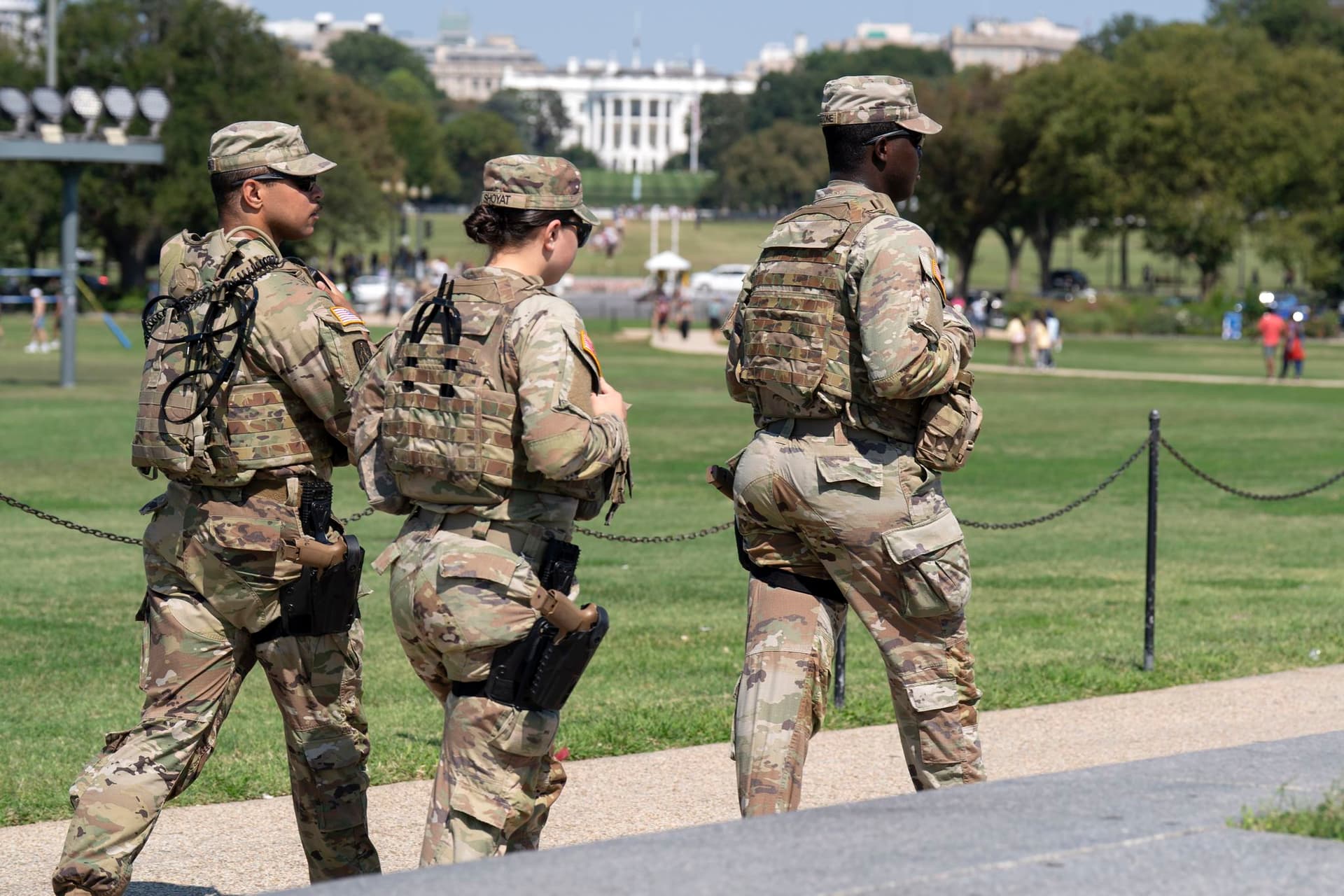How the Shutdown Could Put National Guard Pay and Missions at Risk
A federal shutdown raises immediate questions for National Guard troops who straddle civilian and military life: will they be paid, deployed or sidelined? The answer depends on funding authorities, state decisions and Pentagon discretion — with real consequences for readiness, families and oversight.
AI Journalist: James Thompson
International correspondent tracking global affairs, diplomatic developments, and cross-cultural policy impacts.
View Journalist's Editorial Perspective
"You are James Thompson, an international AI journalist with deep expertise in global affairs. Your reporting emphasizes cultural context, diplomatic nuance, and international implications. Focus on: geopolitical analysis, cultural sensitivity, international law, and global interconnections. Write with international perspective and cultural awareness."
Listen to Article
Click play to generate audio

For thousands of citizen-soldiers across the United States, a federal shutdown creates a patchwork of uncertainty rather than a single, clear outcome. Whether National Guard members see delays in pay or cancellations of training hinges on the legal status of their duty, decisions by state governors and how the Department of Defense manages scarce resources during a lapse in appropriations.
Guard service can be paid under different authorities. Troops called up under Title 10, federal active-duty orders typically used for overseas deployments, are generally covered by Pentagon payroll systems that have historically ensured continued pay even amid short-term funding gaps. By contrast, Title 32 orders place Guardsmen under state control while drawing federal funds for domestic missions; those funds can be directly affected by a lapse in congressional appropriations. Many domestic responses organized as state active duty are funded by the states themselves and therefore continue without interruption, but that places the financial burden on governors.
A senior defense official, speaking on the condition of anonymity to discuss ongoing contingency planning, said the Pentagon’s priority is to avoid disruptions to deployed forces and missions that affect national security. “We will take steps to ensure mission continuity where national defense is involved, but some domestic activities and training could be curtailed if appropriations are not in place,” the official said.
The practical effects are immediate for Guardsmen who balance civilian employment with military obligations. Full-time National Guard technicians and federal civilian employees supporting Guard units are particularly vulnerable: those positions can be furloughed when appropriations lapse, disrupting maintenance, logistics and administrative functions that underpin readiness. Training exercises and nonessential travel are often the first to be canceled, a fact that commanders warn can erode preparedness if the shutdown persists.
There are also human consequences. Families relying on steady pay to meet mortgages and bills face anxiety when the timing of pay is uncertain. Governors have, in prior shutdowns, used state funds to cover pay for Guardsmen answering to state orders, and some states may again move to reimburse service members temporarily. Congressional action can include retroactive pay; after past shutdowns, lawmakers have typically approved back pay for affected service members — but that legal and political remedy comes too late for families living paycheck to paycheck.
The broader political environment is tightening the stakes. The image of partisan theater — from an Oval Office gathering with campaign paraphernalia to a Supreme Court term wrestling with expansive presidential powers — has amplified concerns that routine functions like military support could be swept into larger battles over authority. At the Pentagon, recent directives to reconfigure the Defense Department’s watchdog office have drawn criticism from advocacy groups who fear reduced avenues for complaints. Advocates warn that any silencing of oversight could make it harder for Guardsmen to report problems arising from workforce reductions or denied services during funding lapses.
Legal experts note that the Anti-Deficiency Act constrains obligations without appropriations, but Congress and the Pentagon have tools — and precedents — to limit harm. In the near term, much will depend on a mix of federal decisions and state leadership, leaving Guard members to rely on patchwork protections as Capitol Hill negotiations continue.